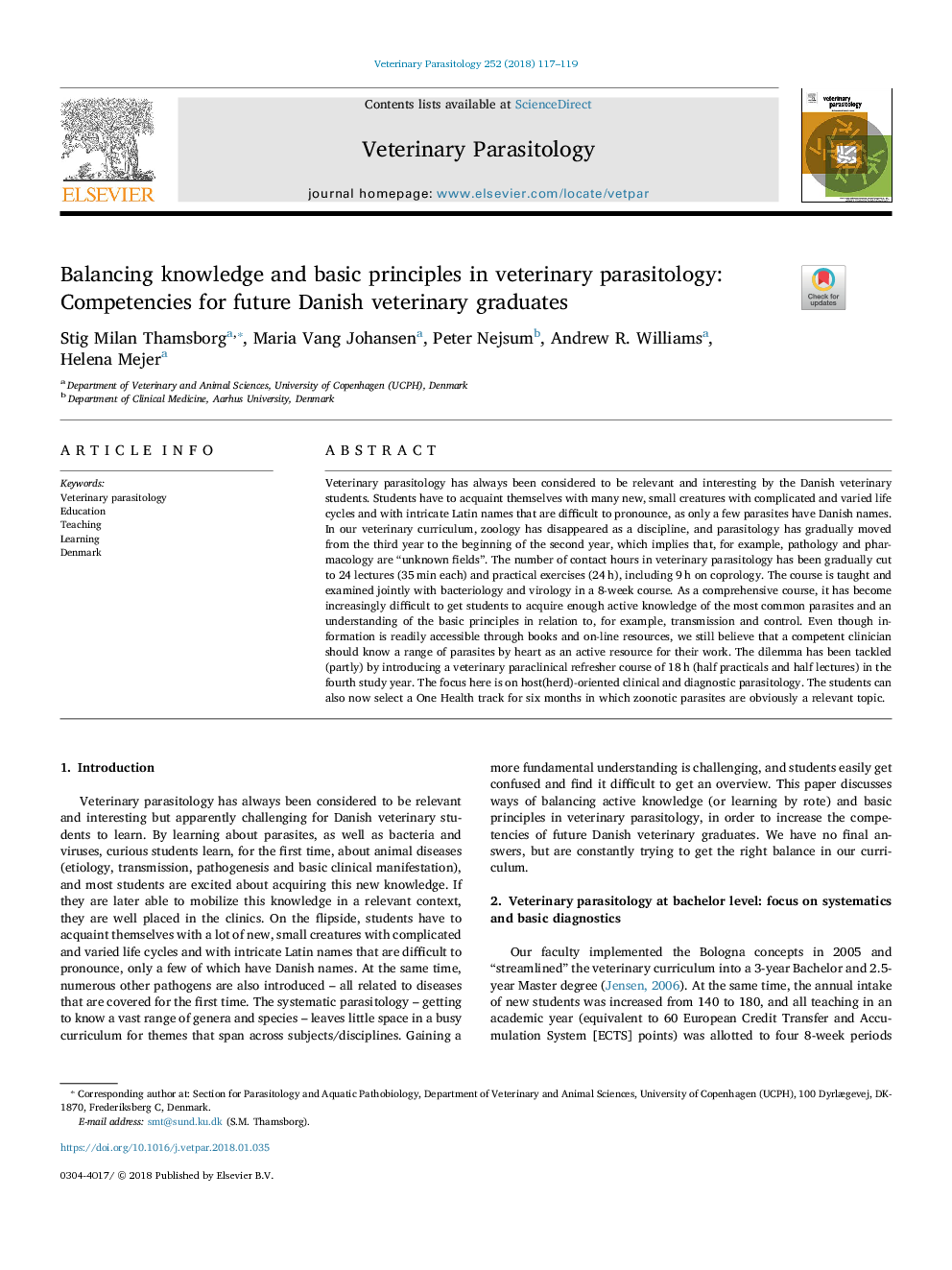ترجمه فارسی عنوان مقاله
تعادل دانش و اصول اساسی در انگل شناسی دامپزشکی توانایی های آینده دامپزشکان دانمارک فارغ التحصیلان
عنوان انگلیسی
Balancing knowledge and basic principles in veterinary parasitology Competencies for future Danish veterinary graduates
| کد مقاله | سال انتشار | تعداد صفحات مقاله انگلیسی |
|---|---|---|
| 146830 | 2018 | 3 صفحه PDF |
منبع

Publisher : Elsevier - Science Direct (الزویر - ساینس دایرکت)
Journal : Veterinary Parasitology, Volume 252, 15 March 2018, Pages 117-119
ترجمه کلمات کلیدی
انگل شناسی دامپزشکی، تحصیلات، درس دادن، یادگیری، دانمارک،
کلمات کلیدی انگلیسی
Veterinary parasitology; Education; Teaching; Learning; Denmark;

